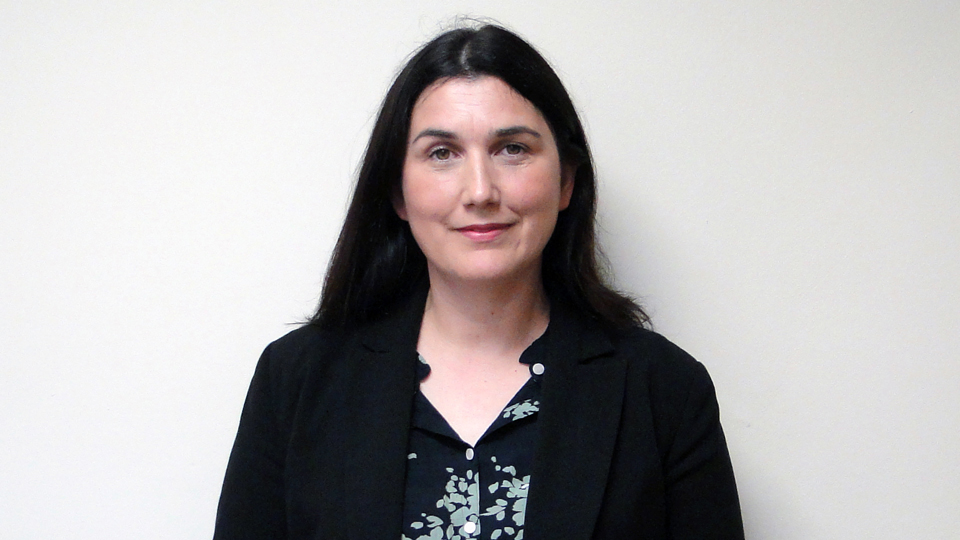- OT
- Life in practice
- Practitioner stories
- Making the move to domiciliary
What I have learned
Making the move to domiciliary
OutsideClinic optometrists Jennie Atyeo and Shane O’Rawe discuss their motivations for switching to the domiciliary sector from the High Street

21 March 2022
Jennie Atyeo, an optometrist with OutsideClinic
What kind of High Street practice were you working in before you made the move to domiciliary?
Jennie Atyeo (JA): I did my pre-reg year with a High Street practice and, following that, I worked full-time as an optometrist at their Weston-Super-Mare store. I made the move into the domiciliary sector in August 2021. Due to the flexibility that OutsideClinic offers its clinicians, I’m still able to work for one day a week at the High Street practice.
Why did you decide to make this move?
JA: I’ve always wanted to work for OutsideClinic. My university lecturer had worked in domiciliary optometry and gave me great feedback about the sector.
OutsideClinic’s mission to ensure that everyone who needs it has access to clinically excellent optometry services at home aligns very much with my values, and I find domiciliary eye care really interesting and rewarding. Given the patient demographic, you see a wide range of ocular pathology and are able to make a real difference.
Another key factor for me was knowing that I would have access to the latest technology, whether that’s a digital fundus camera, mobile slit lamp, or an I-care tonometer. There’s a myth that the technology available in the domiciliary sector is inferior to what is available in High Street practices. It’s simply not true – I have access to everything I need to deliver a comprehensive eye test.

JA: Whilst I enjoy my dual working life, and have fully embraced the benefits of both as each brings a different dynamic. Domiciliary work ensures I get a good work-life balance as I don’t work weekends or Bank Holidays. I have three children, so it’s great to have more quality time with my family, which is incredibly important to me.
Another key difference is the fact that working in the domiciliary sector means I’m able to swap the darkened room of a High Street opticians for getting outside in the fresh air and visiting patients, which is great for wellbeing.
Working for OutsideClinic, I also benefit from longer appointments with patients, which enables me to really connect with them and provide them with the high-quality care they need to make a tangible difference to their lives. Seeing people in their own homes means I’m able to see and understand their challenges first-hand, which is also very different from my experience of working on the High Street.
Any surprises?
JA: Although I work alone, I am never alone as I can rely on the company’s professional services and clinical excellence teams for help and advice if needed. For me, that’s invaluable and means I feel 100% supported.
Some people might also be surprised at just how advanced and digitalised OutsideClinic’s patient care systems are – they are brilliant. With my company iPad, I can very quickly and easily access patient notes, and referring patients takes a matter of seconds. It’s all incredibly straightforward and efficient.
What are the key things that you’ve learnt from making the switch?Given the patient demographic, you see a wide range of ocular pathology and are able to make a real difference
JA: There is so much opportunity to develop as an optometrist within the domiciliary sector. I’m really benefitting from OutsideClinic’s training and peer support, advancing my skills and knowledge in key areas.
What career opportunities has moving into domiciliary given you?
JA: I’m involved in the delivery of every aspect of optometry, including dispensing, whereas on the High Street, an optometrist never really gets involved in the dispensing side of things. Some people might find that more challenging, but I’m really enjoying the opportunity to put a wide range of skills and knowledge to good use. I find it incredibly rewarding.
Are there any COVID-19 learnings from domiciliary that you can share?
JA: The COVID-19 pandemic resulted in many older people preferring to book home visits rather than travel to their High Street optician, and, consequently, demand for OutsideClinic’s services surged. It makes me proud to know that we’re supporting the people who most need our help during these challenging times, delivering clinically excellent eye care to the highest safety standards.
Shane O’Rawe, an optometrist with OutsideClinic

What is your background – how long have you worked in domiciliary optometry?
Shane O’Rawe (SO): My pre-reg year was with Specsavers. After qualifying in 2016 I worked as a locum within independent and multiple practices, before making the switch to OutsideClinic and the domiciliary sector last summer.
The domiciliary sector appealed to me because it offers amazing opportunities to develop a broad range of optometry skills. It’s brilliant in terms of professional development – and the support I receive from our clinical and professional services teams is second-to-none.
Have you learnt anything new whilst working in domiciliary optometry? Any perspectives that have been particularly interesting to you?
SO: The great thing about working at OutsideClinic is that you don’t just learn from one person – you get the opportunity to learn from so many people on a daily basis. I’ve had the opportunity to shadow a number of experienced domiciliary optometrists and I’ve found this invaluable, particularly at this early stage in my domiciliary career.
More awareness about the benefits, rewards, and opportunities of working in domiciliary is needed
What are the key things that might surprise people about working in domiciliary?
SO: More awareness about the benefits, rewards, and opportunities of working in domiciliary is needed. Projections show people aged 65 and over will account for almost 25% of the UK population by 2038, and the home healthcare market will grow by 6.4% by 2026, so domiciliary eye care is a growth sector. There have never been greater opportunities for domiciliary optometrists.


Comments (0)
You must be logged in to join the discussion. Log in